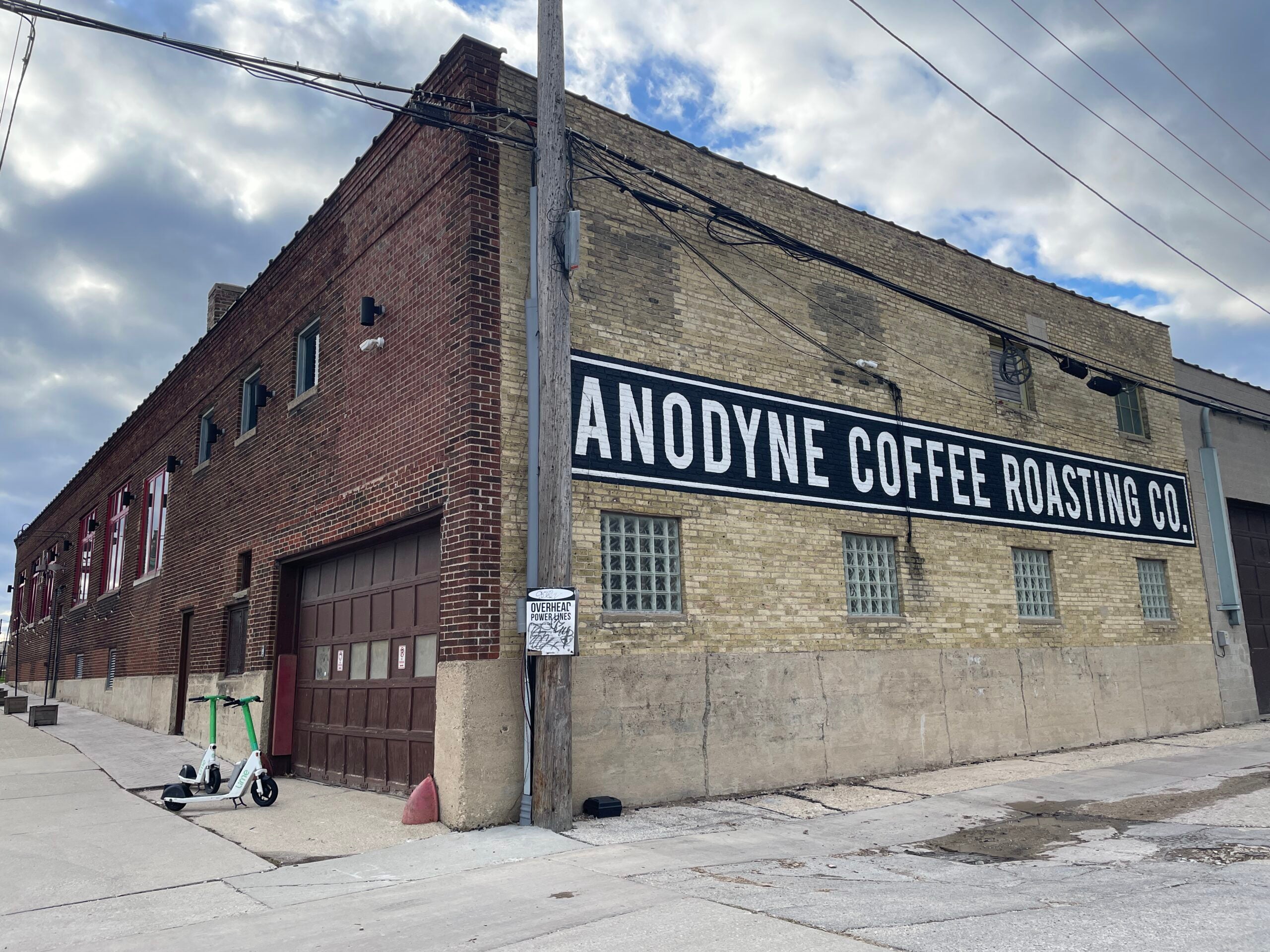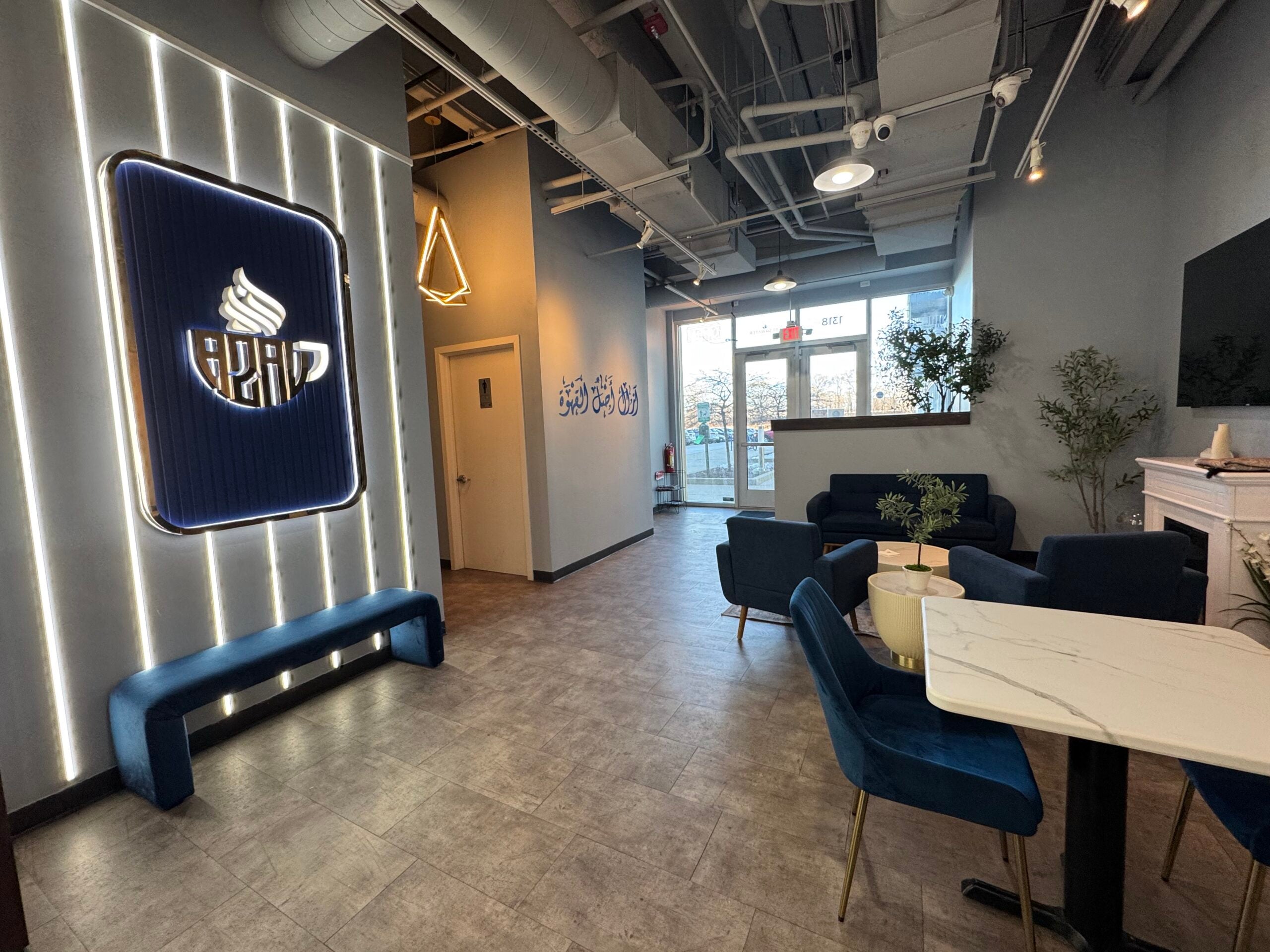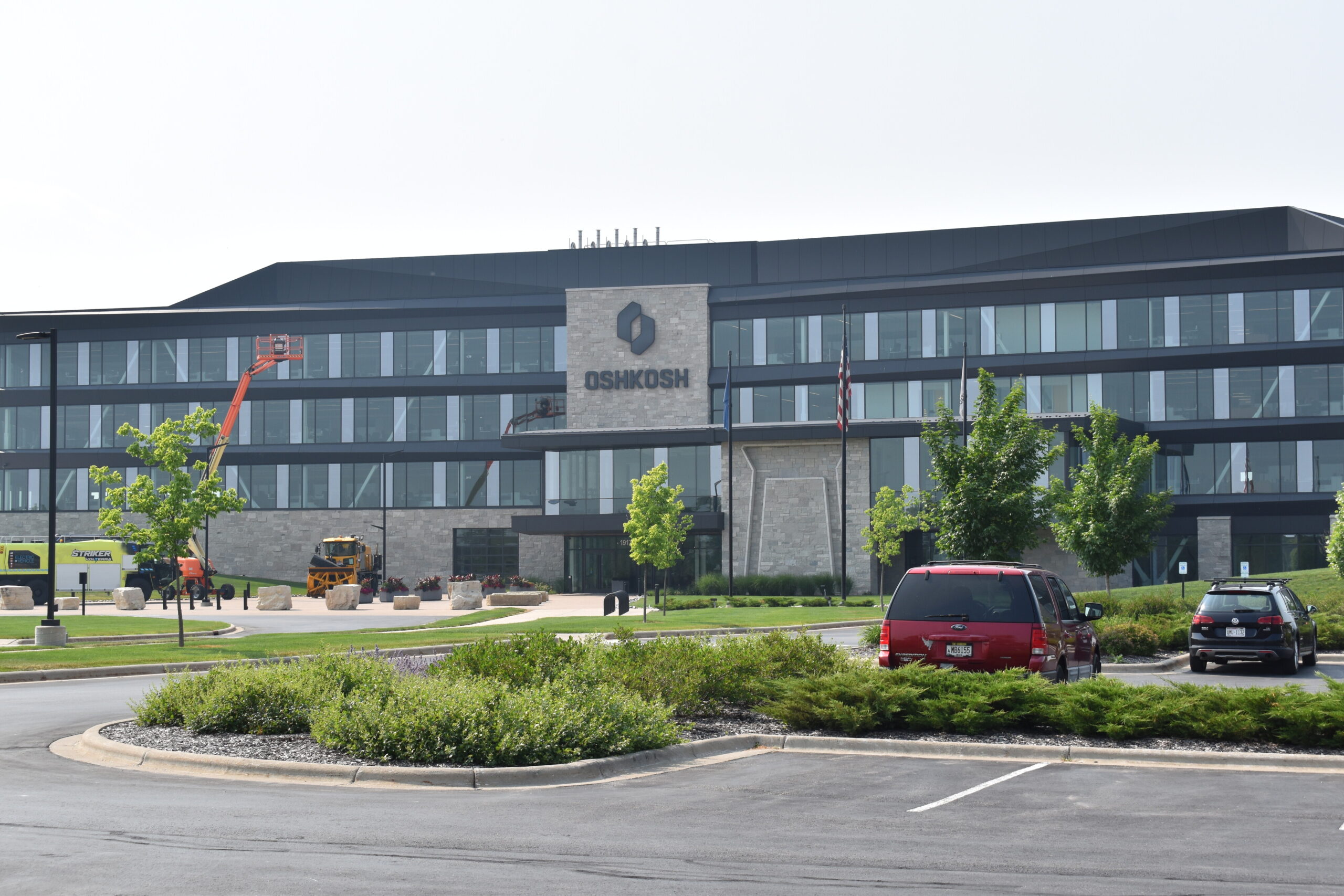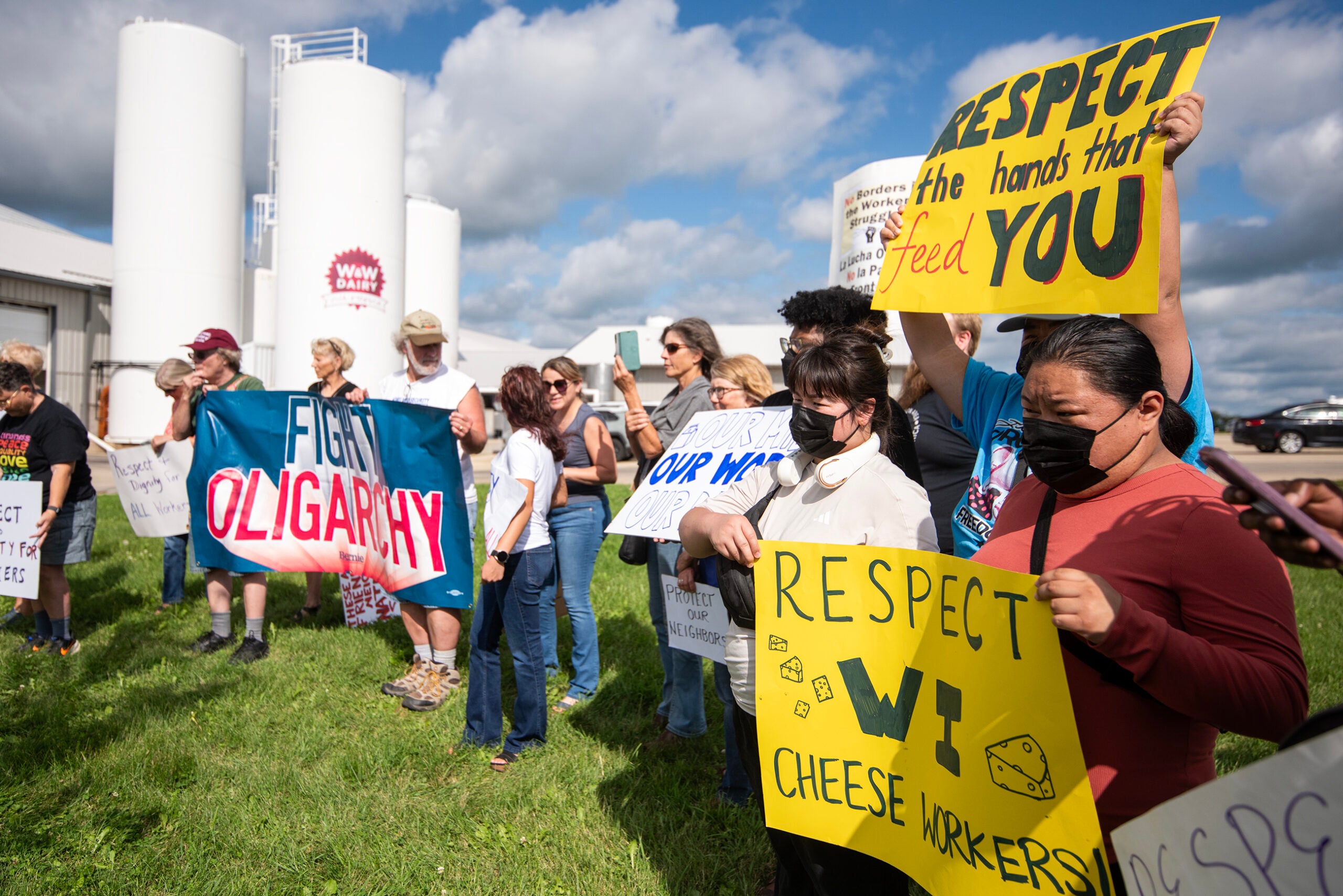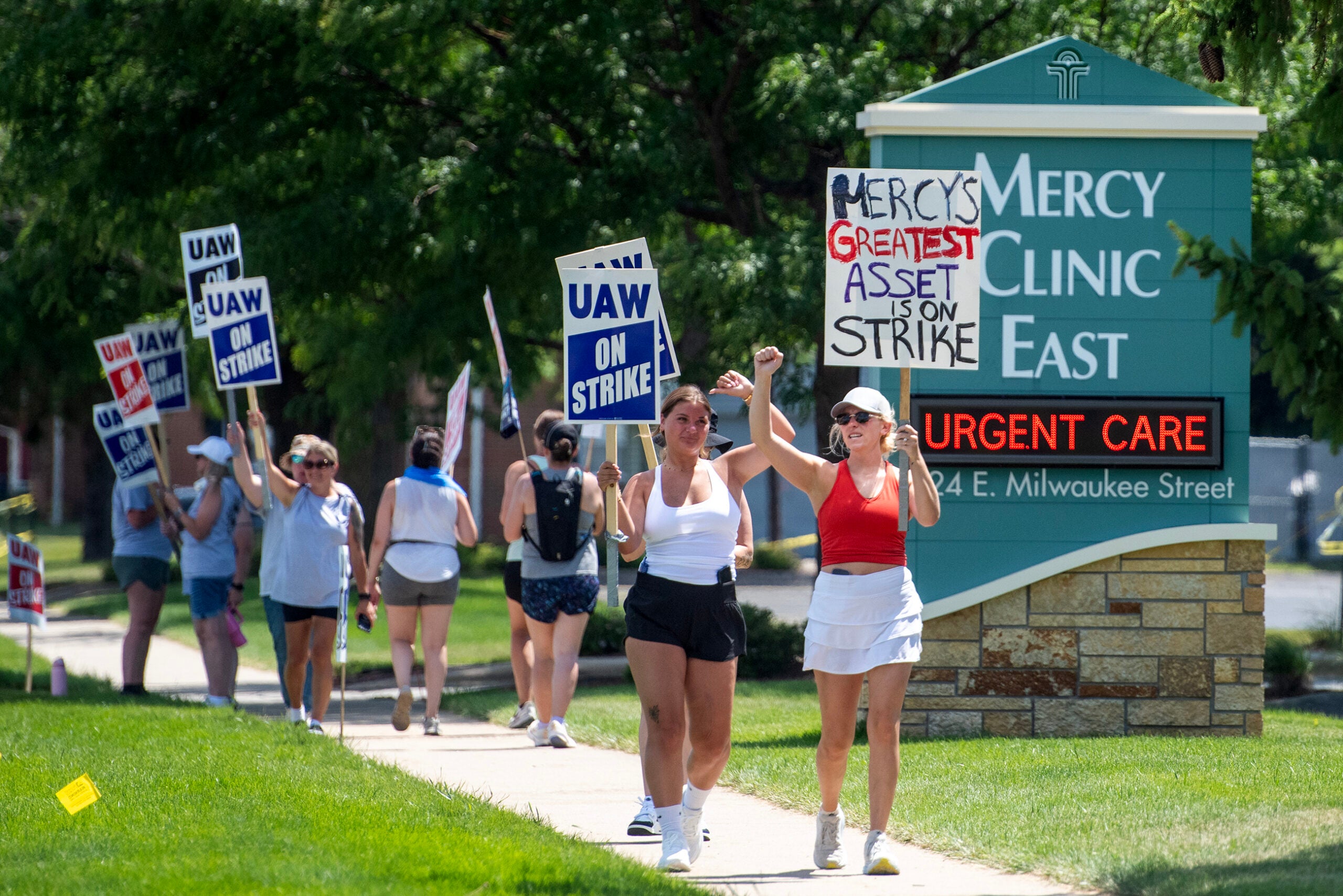When a private equity firm bought Anodyne Coffee Roasting Co. in 2023, workers at the Milwaukee coffee company were hopeful it would be a chance to grow.
“At first, there were some positives,” said Danielle Williams, a training manager for Anodyne. “Now, especially in the last year, we’ve just seen things go in the opposite direction.”
Workers at the popular coffee company are forming a labor union.
News with a little more humanity
WPR’s “Wisconsin Today” newsletter keeps you connected to the state you love without feeling overwhelmed. No paywall. No agenda. No corporate filter.
Last week, they sent the company’s owners a letter requesting recognition of their union, organized with the Milwaukee Area Service and Hospitality Workers Union, known as MASH.
Anodyne’s owner, FairWave Specialty Coffee Collective, responded the next day. It claimed MASH didn’t represent a majority of Anodyne workers, and declined to bargain with the union.
At that point, 47 of 50 eligible workers had signed union membership cards, the worker’s letter stated. That number reached 50 out of 50 over the weekend, according to Peter Rickman, MASH’s president.
Because they challenged Anodyne workers’ request for recognition, FairWave got a two-week window to petition for an National Labor Relations board-run election under 2023 NLRB standards.
Anodyne has four locations in Milwaukee, including a roastery that hosts live music events.
FairWave belongs to Great Range Capital, a Midwest-focused private equity firm from Kansas.
In a statement, Isaac Hodges, a FairWave executive, said, “FairWave is proud of our Anodyne team. We believe in a fair and inclusive workplace where everyone is heard and valued. We are committed to open communication and learning from each other.”
Workers describe private equity’s effect on coffee shop
For Sabrina Prochaska, a barista at Anodyne’s Bay View location, the changes started with cold brew.
It used to be made at the company’s roastery in Milwaukee. One day, production was moved to Kansas City.
“The product tastes completely different than it used to,” she said, a change she had to explain to customers.
Then, in January, base pay for future hires was cut from $15 an hour to $12 an hour, she said.
“Even with the people who are making $15 or a little more, you can’t really get a raise,” Prochaska said. “That essentially has stopped, for the most part.”
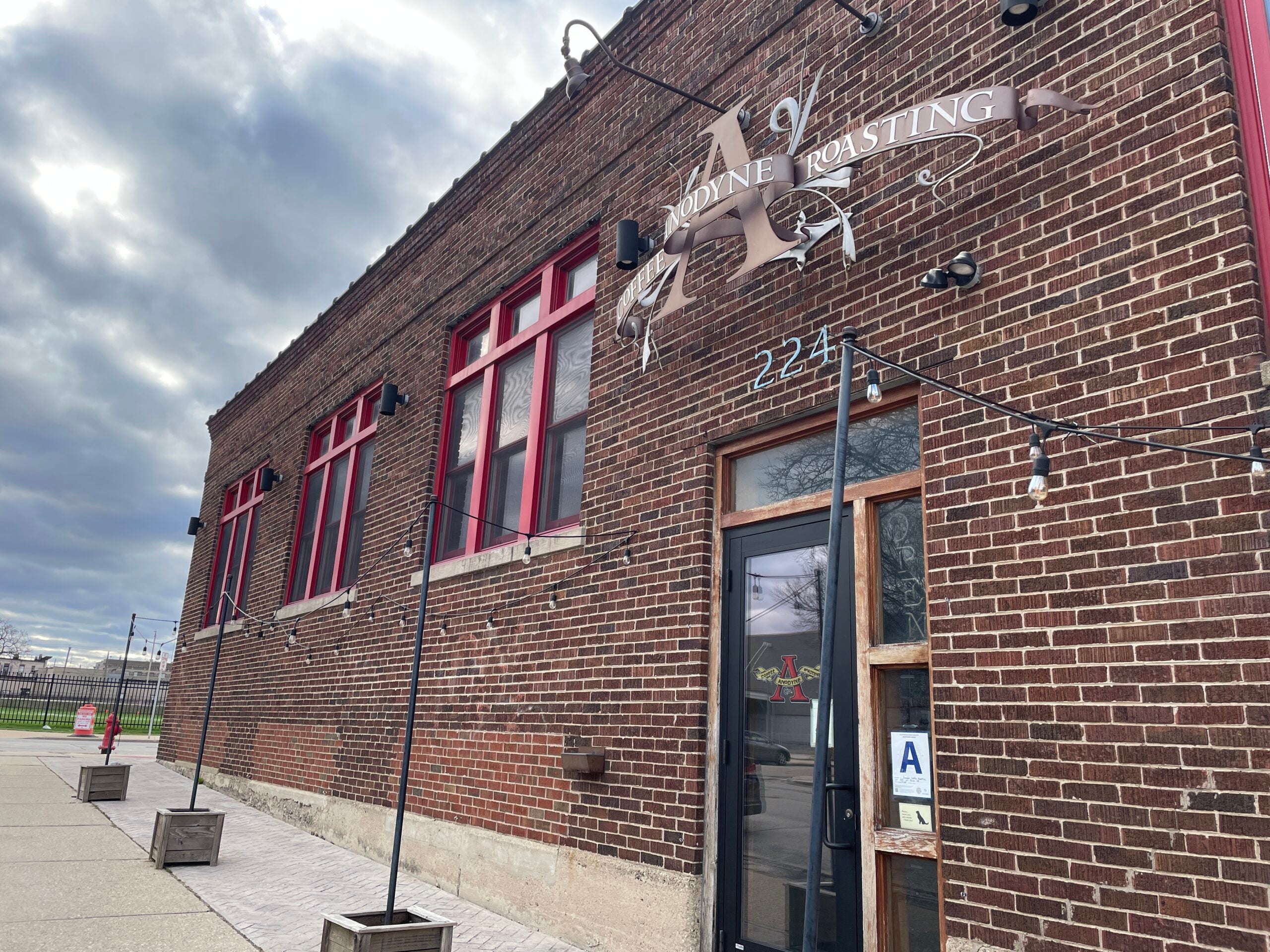
Williams, who has been with Anodyne for 13 years, said unionization is about “preserving the integrity of our brand.” To her, that means being a “hub of the community” through partnerships and events, keeping local focus.
“There used to be a lot of room for our tastes and our ideas, and how we wanted to build the brand,” she said. “Now that is coming, more so, from above.”
Both employees said management increasingly makes decisions with little communication with workers.
“It’s far less democratic,” Williams said.
She also said Anodyne’s owners fill management openings with external hires, rather than promoting people internally.
That’s a concern for Prochaska, who said she hopes to “move up and grow within the company.”
“From what we’ve seen so far, that just isn’t really possible,” she said.
Union’s focus on wages, scheduling, job security
“The only way that service sector workers, hospitality industry workers, ever — ever — get the wages that all working people deserve is through a union contract,” MASH President Rickman said.
Referencing this year’s base pay cut, he said, “We will not settle a contract that doesn’t ensure a living wage.”
“We are absolutely going to be negotiating over a process for creating schedules, and guarantees of decent hours,” he said.
Getting a union could also secure workers’ jobs, Williams said.
“We’re all at-will employees, and can be let go at any time, for any reason,” she said.
She hopes a contract would come with more protections.
“You just know you have that security,” Prochaska said.
Wisconsin Public Radio, © Copyright 2026, Board of Regents of the University of Wisconsin System and Wisconsin Educational Communications Board.

